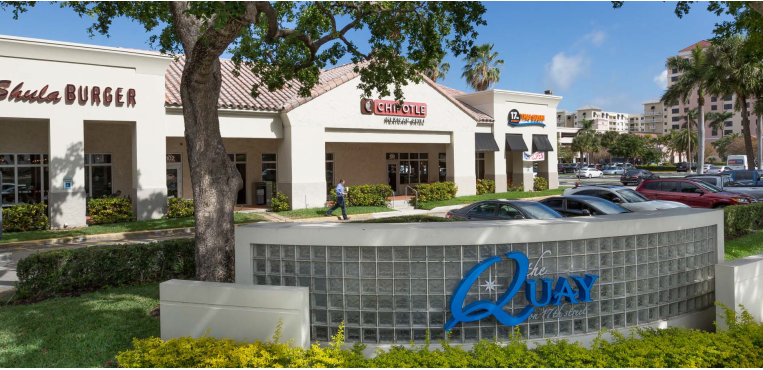CIT Lends $29M in Florida Retail Acquisition
By Matt Grossman April 5, 2019 3:40 pm
reprints
Mast Capital, a Miami investor and developer, has picked up a $28.6 million loan from CIT Bank in order to buy a shopping center in Fort Lauderdale, Fla., the developer announced today.
Mast is paying the prior owner, Hudson Capital Group, $43 million for the 7-acre site, at 1515 Southeast 17th Street, just south of downtown Fort Lauderdale in the city’s Lauderdale Harbours area. Retail is the focus of the fully occupied development, known as The Quay, with tenants including restaurants, a nail salon and a post office. But the property also includes a two-story office building and a marina.
“This property generates strong in-place cash flows, which we believe have further upside,” said Camilo Miguel, Mast’s CEO, said in a statement. “The Quay’s unique waterfront location, proximity to major points of interest and frontage on a well-trafficked corridor position it to benefit from Fort Lauderdale’s growing popularity as a city for people to live, work and play.”
Indeed, the Atlantic Coast hub, only about 25 miles north of Miami, is ascendant. Its population has grown nearly 20 percent since 2000, according to census data, and in 2017, almost 13 million tourists visited the Fort Lauderdale area and spent nearly $6 billion there, according to a local visitors’ bureau. A new privately-owned train, the Brightline, connects the city to West Palm Beach, Fla. and will soon extend to Miami.
Retail in Broward County—which encapsulates Fort Lauderdale—finished 2018 on a slightly warier note, with vacancy rates ticking up slightly, according to research from Colliers International. But the proportion of occupied retail space is still above 96 percent, and overall, 2.1 million square feet of storefronts got leased last year.
The Quay deal is Mast’s first in Fort Lauderdale, but it’s an important landlord elsewhere in the eastern U.S. In Miami, Mast is building a 688-unit apartment complex called Miami River Walk adjacent to the Miami River, and it also owns hotels, rental apartment buildings and shopping centers in Key West, Fla., Washington, D.C. and in Ohio.
A CIT spokesman did not immediately respond to an inquiry.



